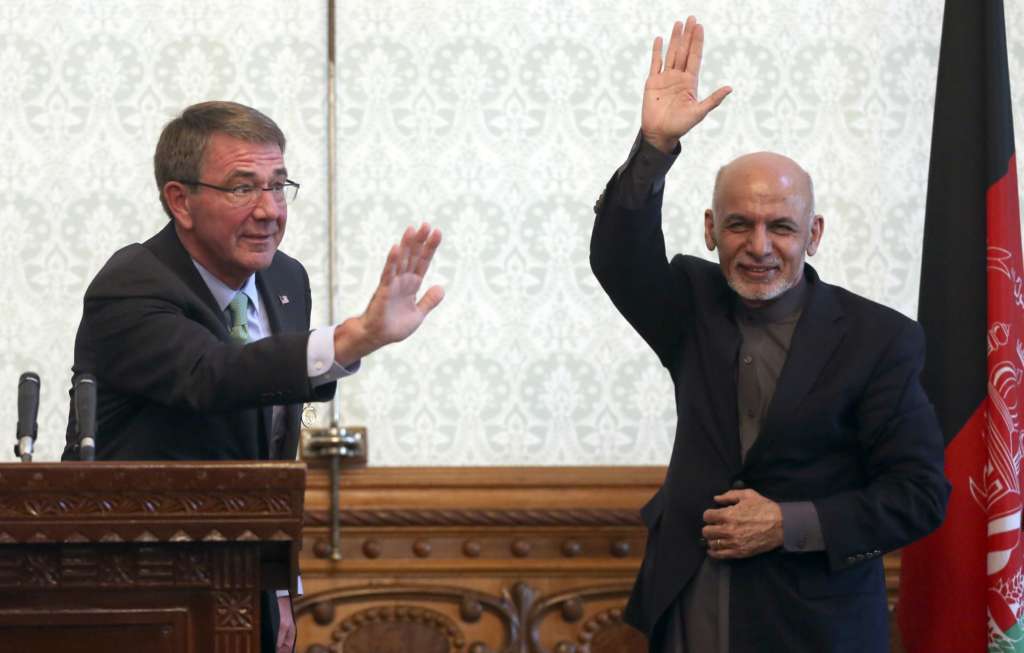Kabul- U.S. Defense Secretary Ash Carter
made on Friday an unannounced visit to Afghanistan to consult with military commanders and deliver a preholiday pep talk to U.S. troops, and he met with Afghan President Ashraf Ghani.
The United States will “remain committed” to Afghanistan, Carter said on Friday, amid questions about what President-elect Donald Trump’s foreign policy will mean for the country as it faces a renewed Taliban insurgency.
In a joint appearance in Kabul with President Ghani, Carter said “America is, and will remain, committed to a sovereign and secure Afghanistan.”
Ghani thanked Carter for the U.S. military contribution and its sacrifices in the conflict.
Meanwhile, Carter was making his last planned trip to Afghanistan before handing off his Defense Department responsibilities to his successor retired Marine Gen. James Mattis.
In addition to several engagements with U.S. troops deployed to Afghanistan, Carter will meet with Army Gen. John W. Nicholson Jr., commander of NATO’s Resolute Support mission and U.S. Forces Afghanistan, and other senior officers to hear their assessment of the security situation and international efforts to help the government of Afghanistan improve security in the country.
Afghanistan was barely mentioned during a bitterly fought election campaign, which largely focused on domestic issues, between Republican Trump and his Democratic rival, former Secretary of State Hillary Clinton.
Trump, however said the United States should stop carrying out “nation building.”
Ghani and Trump spoke by telephone last week and the Trump transition team said in a statement they discussed the “terrorism threats facing both countries.”
Speaking with reporters at Bagram air base north of Kabul later on Friday, General John Nicholson, the commander of U.S. and international forces in Afghanistan, said it was important for the United States to remain committed in Afghanistan.
“Our policy of having an enduring counterterrorism effort alongside of our Afghan partners is, in my view, very sound and something we need to continue,” Nicholson said.
Leaders of five out of the 20 designated militant organizations in the Afghanistan-Pakistan region had been killed and ISIS had lost two-thirds of its territory, something that needed to continue in future, he said.
For his part, James Dobbins, a former U.S. special envoy for Afghanistan, said Afghanistan would not figure highly for Trump, given the fight against ISIS militants in Syria and Iraq.
This, Dobbins said, was likely to mean that the number of U.S. troops in Afghanistan would remain unchanged, at least in the short term.
Trump will inherit a challenging security situation in Afghanistan.
A number of provincial capitals have been under pressure from the Taliban while Afghan forces have been suffering high casualty rates, with more than 5,500 killed in the first eight months of 2016.
